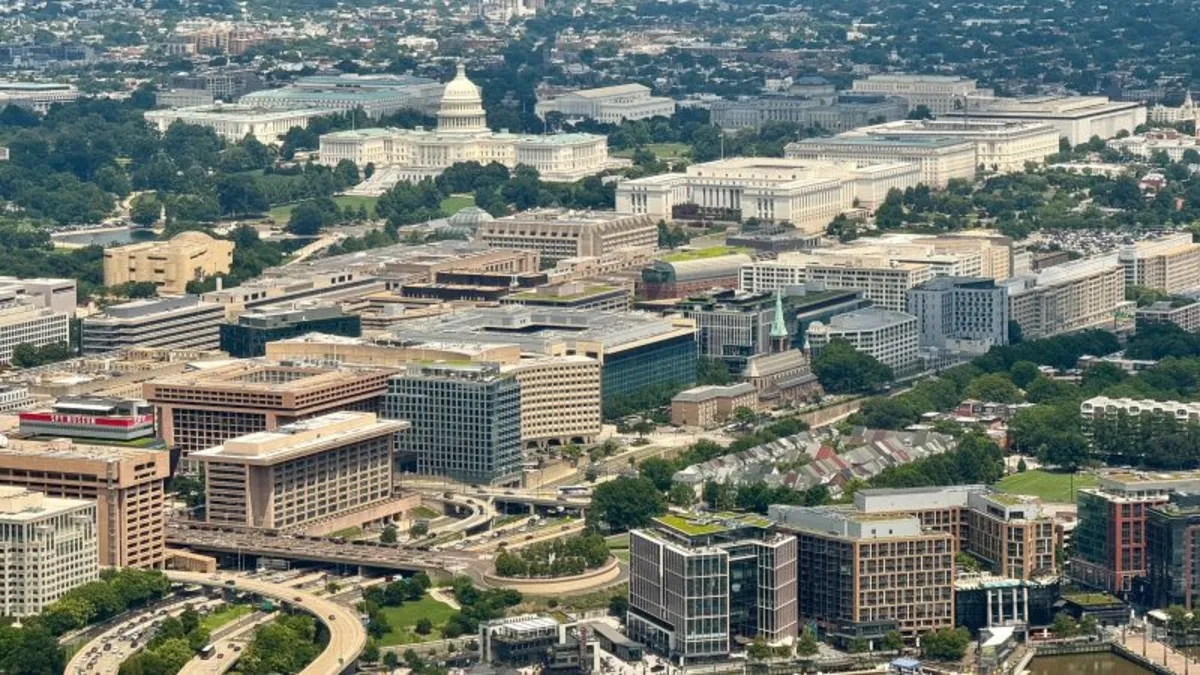
The White House budget office has taken a significant step by instructing federal agencies to formulate plans for potential mass firings in the event of a government shutdown. This directive, communicated through a memo from the Office of Management and Budget (OMB), emphasizes the need to target programs that are not mandated by law, signaling a stark shift from how previous administrations have handled similar situations. This move comes as a result of ongoing tensions between the Trump administration and congressional Democrats regarding federal funding.
According to the memo obtained by CNN, the OMB has directed agencies to identify programs that may lose funding if Congress fails to meet the September 30 deadline. These programs, which lack alternative funding sources, are to be prioritized for sweeping reductions, potentially resulting in permanent job losses for employees working on initiatives that the administration deems “not consistent” with President Donald Trump’s priorities.
Despite the alarming implications of this directive, the OMB expressed hope that Congress would avoid a shutdown and that these drastic measures would not be necessary. A spokesperson for the OMB declined to provide further comments, but the details of the memo were first reported by Politico.
Senate Minority Leader Chuck Schumer criticized the memo, labeling it as an “attempt at intimidation.” In a statement, he remarked, “Donald Trump has been firing federal workers since day one—not to govern, but to scare. This is nothing new and has nothing to do with funding the government.” Schumer suggested that any wrongful firings would likely be challenged in court or result in the reinstatement of workers, echoing similar occurrences from earlier in the administration.
The looming threat of mass job losses is poised to escalate the ongoing partisan struggle over funding, as Democrats push for various concessions to keep the government operational into November. A key demand from Democrats includes the extension of enhanced federal subsidies for Affordable Care Act coverage, which are set to expire at the end of the year. Meanwhile, the White House and congressional Republicans have maintained their stance, advocating for a “clean” funding extension.
Earlier this week, President Trump canceled a scheduled meeting with Democratic leaders aimed at resolving the funding deadlock, outright rejecting their demands. The OMB’s latest memo reiterated the administration’s position, labeling the Democrats’ stance as “insane” and asserting that core Trump administration priorities would continue to receive funding even in the event of a shutdown.
This memo marks the latest and most extensive effort by the Trump administration to downsize the federal workforce. In February, Trump signed an executive order mandating agencies to create plans for significant workforce reductions. The outcomes have varied widely, with some agencies implementing substantial layoffs, while others have reversed their decisions or even requested that some terminated employees return to their positions.
This current initiative aligns with a prior memo from the OMB and the Office of Personnel Management, which instructed agencies to identify non-essential functions and employees. As the funding deadline approaches, OMB has yet to publish agencies' shutdown contingency plans on its website, despite the urgency of the situation.
Government shutdowns have diverse and far-reaching effects. While essential services such as Social Security payments, law enforcement, air traffic control, and border patrol typically continue, many federal operations halt. Past shutdowns have resulted in closed national parks, stalled food inspections, and delayed federal loans. During the last potential shutdown in March, over 1.4 million employees were classified as essential, with approximately 750,000 still receiving pay from alternative sources.
The potential for massive layoffs raises concerns among federal workers and their unions. The National Treasury Employees Union has expressed ignorance regarding the memo's content, while the American Federation of Government Employees has not yet responded. Advocates for federal employees have condemned the idea of using a government shutdown to diminish the federal workforce, arguing that it poses significant risks to national talent and expertise.
Bobby Kogan, a former OMB official, criticized the proposed actions as self-destructive, stating, “It’s also extortive. ‘Give us what we want in a funding fight, or we’ll hurt the country.’” As the deadline approaches, the implications of this directive will continue to unfold, and the future of numerous federal employees hangs in the balance.